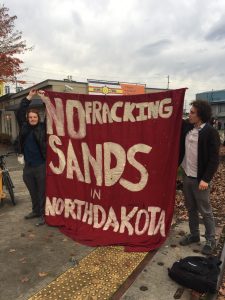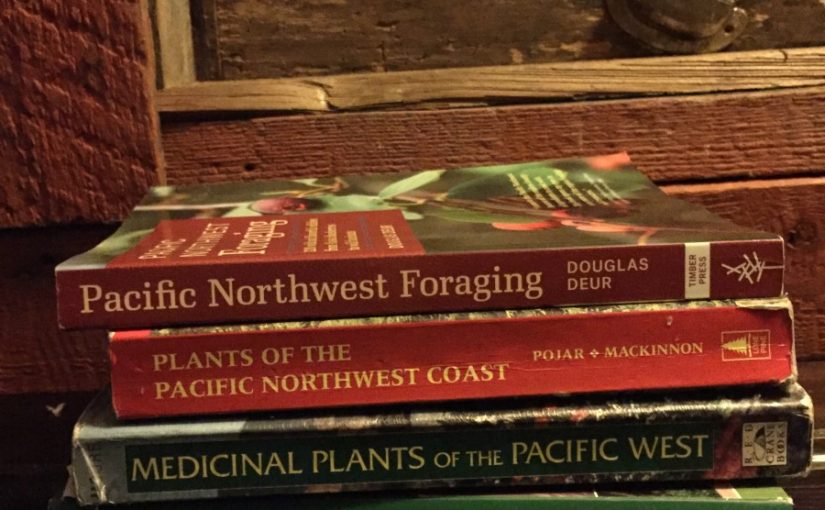Backpacking trips into the depths of the forest are my inspiration for studying at Evergreen. Both,the trips and Evergreen, have encouraged exploration and growth. My time outdoors has allowed me to reflect back on urban life from an outside perspective, which has been invaluable. I enrolled in my first program, “NW Developments”, to gain an understanding of the environment we choose to live in. In Spring, I dove into a program, “Nature Writing,” to explore the history and the future of humans in nature.
Natural areas embody the meaning of sustainability and reciprocation. There is no waste created, a contrast to modern human life. In the wild, I was keenly aware of the modern resources keeping me alive and I stopped taking them for granted. I developed insights into the luxuries we enjoy and the cost they really have. Even with minimal luxuries, I have been happier in the woods than I ever have been anywhere. Experiencing this brought up the question, “Where does true happiness come from?”
For me, happiness is a state of mind-in-body and body-in-nature. When I return home from the forest with dirt on my boots I show kindness to everyone I meet. Such experiences have led me down a trail towards becoming a positive force of change for others and the planet. This motivation is the reason I enrolled at Evergreen.
Joining “Introduction to Environmental Studies”, I stepped into a scientific perspective on the world. The most valuable learning I did in this program was gaining an in-depth knowledge on the science of climate change. This knowledge affects everything in my life. I’m learning the skills and gaining the credentials to be an effective activist for wild places in a warming climate. Learning, for me, involves getting dirt on my boots.
As a staff member at The Evergreen Outdoor Program, I practiced interacting with people in the wild. I loved sharing my knowledge and giving people the opportunity to challenge themselves. In the Spring of 2015, I packed a bag and left Olympia to spend 10 weeks at The North Cascades Institute. There, I was a Mountain School Intern. My days were spent exploring the old growth forests of the North Cascades National Park with 5th graders and learning with them about the plants and animals that live there. My independent project focused on the stages of succession in the forest, which developed into a curriculum for the students. This experience impacted me profoundly. I knew environmental education would be in my future. It gave me a creative outlet for my knowledge and advocacy of wild places.
When I returned to Olympia, I was ready to learn as much as I could about plants so I enrolled in an upper division program called “Plant Physiology and Ecology.” This gave me a solid grasp on the scientific understanding of plants. Come the Spring of 2016, I couldn’t wait to get back into the dirt with students. At the Internship Fair I found my opportunity: a non- profit called “Seed To Table” which specializes in Edible Education. The curriculum is based around growing and preparing plants for food. At the same time, I became the co-chair of the Food Systems Working Group, a committee focused on creating a better food system on campus. My passion for environmental justice and my love of plants and food led me to this position. The committee works on developing policy to affect the collective impact of the school.
My final year at Evergreen, I engaged a program called “Adaptations.” It explored biology through an evolutionary lens. This class taught me to think critically about what makes organisms the way they are. Like, why do plants flower at different times of the year? One answer: To compete for pollinators. This would drive some angiosperms to evolve a biennial or perennial reproductive pattern from an annual pattern to flower in early spring before the other flowers. “Adaptations” allowed me to form a confident understanding of biological phenomena.
The crown on the end of my education has been an Independent Learning Contract that explores the wilderness by asking, “How can we take care of ourselves using wild plants?” These wild plants present alternatives to store bought products. I learned to make a salve from the leaf buds of the Black Cottonwood tree. The salve is used topically for sore muscles and skin health. Projects like this give me the skills to be independant and strong.
My Evergreen education has informed my lifestyle and my lifestyle is committed to education and advocacy.

